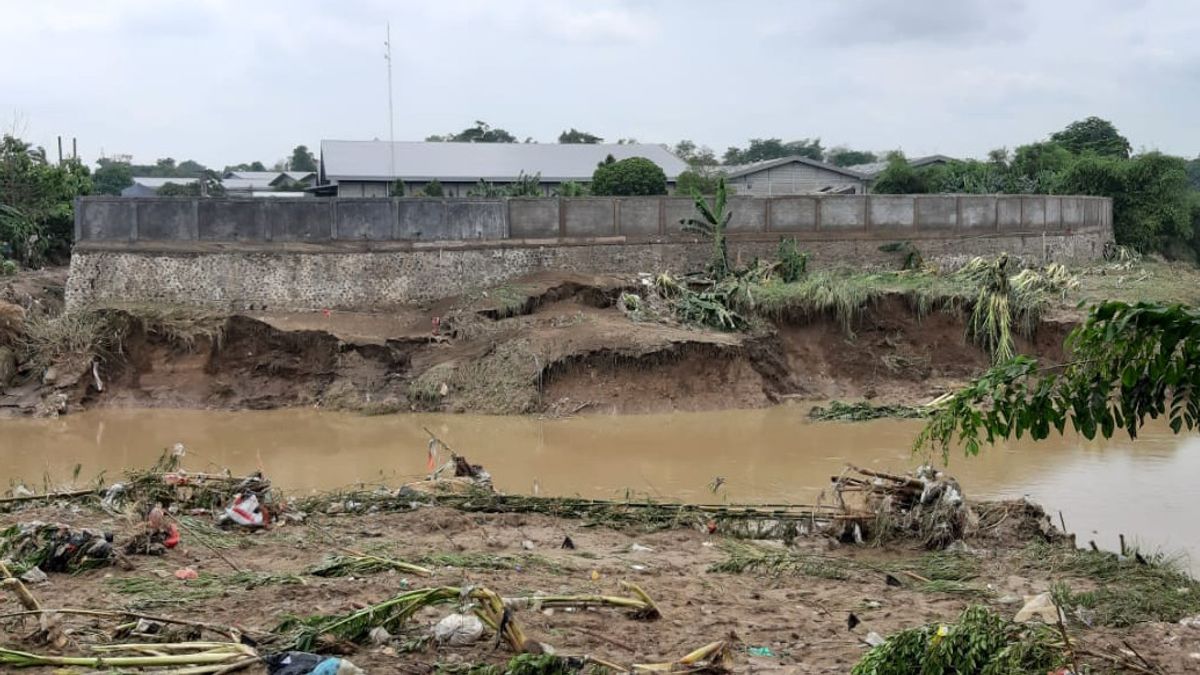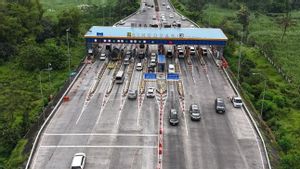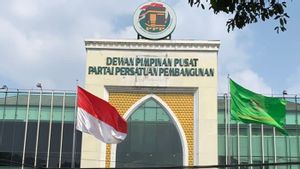JAKARTA - Regional Disaster Management Agencies (BPBD) in all regions are asked to immediately consolidate and increase preparedness to respond to the potential for extreme natural disturbances in the next few days. This is because BPBD is the spearhead of disaster management in the regions.
Not only BPBD, all elements of society must also raise awareness. This is because there are forecasts for high rainfall in the next few days. Community vigilance is important to minimize risks.
MPR Chairman Bambang Soesatyo (Bamsoet) said that the Meteorology, Climatology and Geophysics Agency (BMKG) has also published forecasts of high rainfall in a number of areas in the period 5 to 10 January 2020.
The predicted areas with high rainfall include Bali, Nusa Tenggara, South Kalimantan, Sulawesi, South Sumatra, Sumatra; West and Java, including Jakarta and Bodetabek (Bogor, Tangerang, Bekasi).
Based on data from the BMKG (Meteorology, Climatology and Geophysics Agency), Bambang said, the coastal areas of North Jakarta will experience maximum tide from 9 to 11 January 2020. The maximum tide will occur at 10.00 WIB on January 9, 10.00-11.00 WIB on 10 January and 11.00 WIB on 11 January 2020. This maximum tide is expected to cause tidal flooding and could exacerbate flooding in Jakarta.
"This detailed BMKG forecast should be responded to by all parties with the various anticipatory activities required, especially by the regional government and BPBD, as well as all elements of society," said Bamsoet, through a written statement received by VOI, in Jakarta, Monday, January 6.
In addition, Bambang also invited all volunteer organizations to be pro-active, to face the various possibilities that might occur due to the extreme weather. This is to minimize risk.
Bambang admitted that he continues to pay close attention to natural disturbances that have occurred in a number of areas recently. Some are quite extreme, such as in Jakarta and Bodetabek, as well as hot clouds from the avalanche of Mount Merapi which began on Saturday, January 4, evening. The incident at Mount Merapi caused a light ash rain around Cepogo District, Boyolali Regency, Central Java.
"To get an overview of weather changes in the next few days, BPBD officers are advised to actively listen to the weather forecast from the BMKG," he explained.
BPBD Must Be Active to Inform Early Warning
BNPB asked BPBD throughout Indonesia to actively inform the public about early warnings of extreme weather. Through this early warning, residents can increase their vigilance and preparedness.
Head of the Center for Disaster Data, Information and Communication Agus Wibowo said this was inseparable from the results of the BMKG's analysis regarding the current dynamics of the atmosphere. BMKG forecast shows that the potential for heavy rain in several regions of Indonesia will still occur for the next week.
Still according to the BMKG report, the reduced low pressure pattern in the Northern Hemisphere (BBU) and the increase in the Low Pressure pattern in the Southern Hemisphere (BBS) indicates an increase in Asian monsoon activity which can lead to additional wet air masses in Indonesian territory.
In addition, the increasing low pressure pattern in the BBS, around Australia, can form a convergence pattern or meeting of air masses and wind bends to significantly increase the growth of rain clouds in Indonesia, especially in the southern part of the equator.
Based on the prediction model, the wet phase of the Madden Julian Oscillation (MJO) activity is predicted to be active in the vicinity of Indonesia over the next week. According to BMKG, this condition can significantly increase the potential for rain cloud formation in Indonesian territory.
Based on these conditions, BMKG predicts in the next week the potential for extreme weather and rainfall with heavy intensity that can be accompanied by lightning or strong winds has the potential to occur in several regions of the archipelago.
"Weather conditions have also triggered the potential for sea wave heights in Indonesian territory to reach more than 2.5 meters in several water areas as follows for the next week," said Agus.
All parties are advised to be vigilant and increase preparedness for potential extreme weather in the next week. BNPB asked the public to be alert and ready in case of floods, landslides and tornadoes.
"Secure important documents, prepare disaster preparedness bags that can be carried quickly. The contents of a disaster preparedness bag can be in the form of food, drinks, clothes, flashlights, whistles, radio, medicines, etc. as needed," he explained.
In addition, Agus reminded, to carry out mutual cooperation among residents to clean waterways in homes and the environment, dispose of garbage in its place, trim trees that are too dense and plant trees.
BNPB Asks BPBD No Longer Under the Coordination of Regional Government
Head of the Operational Control Center for the National Disaster Management Agency (BNPB) Bambang Surya Putra hopes that the National Regional Management Agency (BPBD) can be under his coordination.
This is because, according to Bambang, so far the head of the BPBD has been chosen without considering his background in the disaster management sector by the regional government. Bambang hopes that later BPBD can be coordinated under BNPB to facilitate the performance of the two institutions when dealing with disasters.
"If possible under BNPB cool, even better. Because it makes it easier for us to mobilize and standardize our abilities," said Bambang when met on Jalan Baiduri Bulan Bidara Cina, East Jakarta, Saturday, January 4.
Whereas BPBD can be filled by people with integrity, have high enthusiasm, skills and human spirit. Bambang hopes that his proposal can be realized through the revision of Law (RUU) Number 24 of 2007 concerning Disaster Management.
Bambang also said that the head of the BPBD was considered an 'outcast' position. Because that is what causes these positions to be filled by those who do not have a background in the field of disaster.
"Now, right now, it's up to the regional head. Today maybe the head of the school becomes the head of the BPBD, tomorrow maybe nurses from various professions can enter. In a number of regions, even the head of BPND is considered as a remnant. Instead of not getting a place everywhere, just placed in the BPBD, "he said.
The English, Chinese, Japanese, Arabic, and French versions are automatically generated by the AI. So there may still be inaccuracies in translating, please always see Indonesian as our main language. (system supported by DigitalSiber.id)













